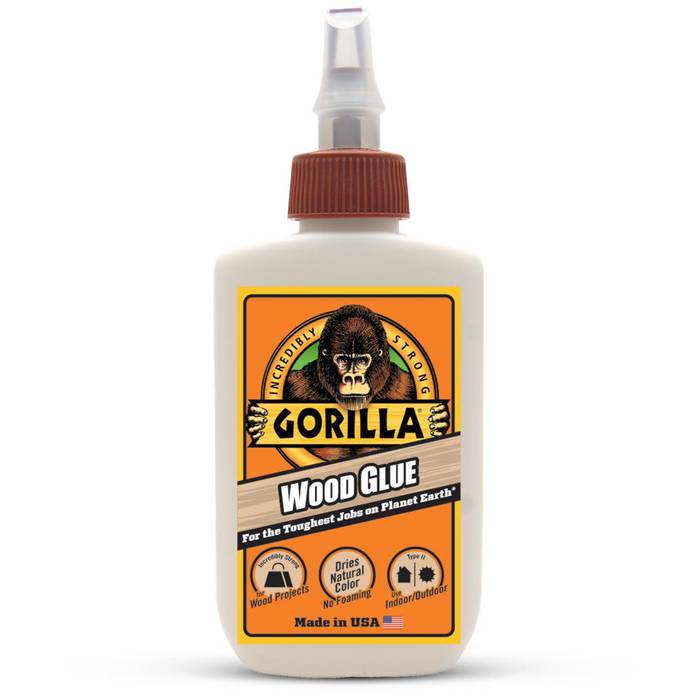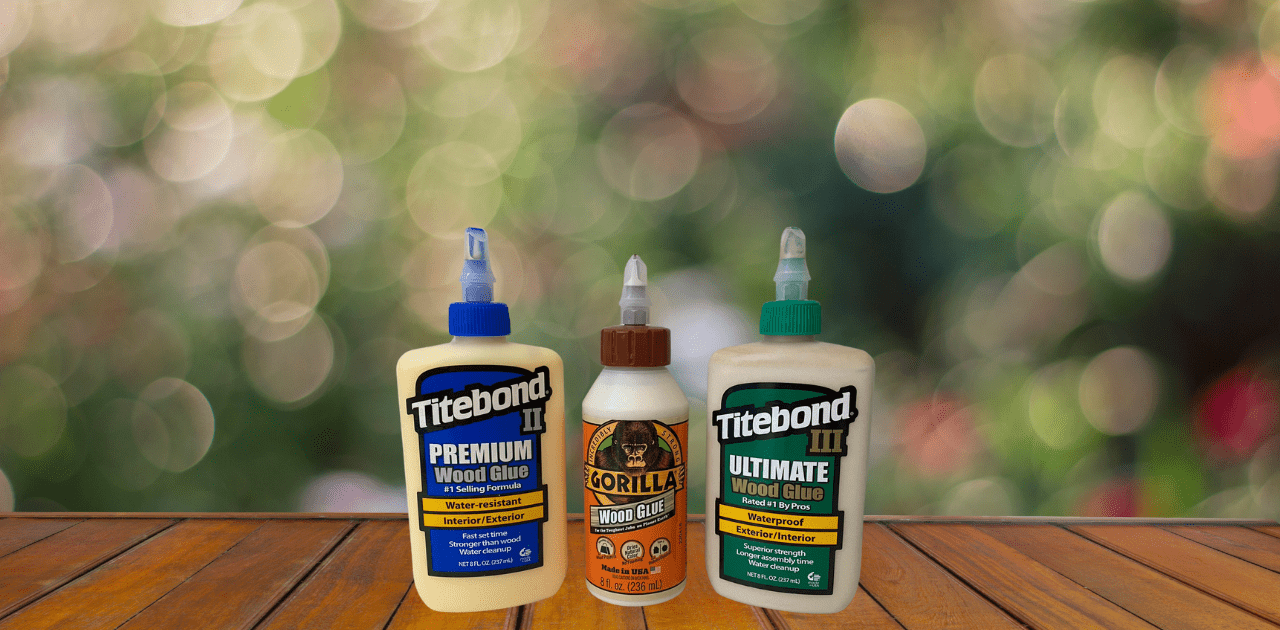Looking for answers about wood glue and whether it’s dangerous? Wondering if that sticky substance in your workshop poses any risks? Well, you’ve come to the right place! In this article, we’ll dive into the topic of wood glue and explore whether it’s something you need to be cautious about. So, let’s get started and find out if wood glue is really a cause for concern!
When it comes to woodworking projects, using wood glue is a common practice. You might be wondering, “Isn’t glue supposed to be safe?” And you’re absolutely right! In general, wood glue is considered safe for use, especially when handled responsibly. However, there are a few factors to consider to ensure your safety. So, let’s shed some light on those differences and help you understand the potential risks involved, if any.
Now that safety is on the front burner, you might be curious about the potential dangers of wood glue. It’s important to note that while wood glue is generally safe, improper usage can lead to health risks. In this article, we’ll explore the safety guidelines for using wood glue, how to minimize risks, and ensure a safe woodworking experience. So, let’s delve into the specifics and get a better grasp of wood glue’s safety profile!

Is Wood Glue Dangerous? Exploring the Safety of Wood Adhesives
Wood glue is a common adhesive used in various woodworking projects. While it is a versatile and effective bonding agent, many people wonder if it poses any safety risks. In this article, we will delve into the topic of whether wood glue is dangerous and explore its potential hazards. By the end, you will have a better understanding of the safety considerations when working with wood glue.
Understanding Wood Glue Composition
Wood glue, also known as carpenter’s glue or PVA glue, is typically made from a water-based polymer called polyvinyl acetate. It is a non-toxic adhesive commonly used for bonding wood surfaces together. The glue forms a strong bond when the water evaporates, leaving behind a solid adhesive film. This type of glue is popular among woodworkers due to its ease of use, versatility, and affordability.
Wood Glue Potential Risks
Although wood glue is generally considered safe when used as directed, there are a few potential risks to be aware of. Here are some key considerations:
- Eye and Skin Irritation: Wood glue can cause irritation if it comes into contact with the eyes or skin. It is important to wear protective gloves and goggles when handling wood glue to minimize the risk of irritation.
- Allergic Reactions: Some individuals may be allergic to the components of wood glue, such as polyvinyl acetate. If you experience symptoms like itching, redness, or difficulty breathing after prolonged exposure to wood glue, seek medical attention immediately.
- Ingestion: Ingesting wood glue can be harmful, especially in large quantities. While wood glue is not typically appetizing, it is important to keep it out of reach of children and pets to prevent accidental ingestion.
Safe Handling and Best Practices
Although wood glue carries some potential risks, practicing proper safety measures can help mitigate any hazards. Here are some guidelines to ensure safe handling and use:
1. Use in Well-Ventilated Areas
When working with wood glue, ensure proper ventilation to prevent the inhalation of potentially harmful fumes. Open windows or use a fan to improve air circulation in your workspace.
2. Wear Protective Gear
Protect your skin and eyes by wearing gloves and safety goggles when handling wood glue. This will help minimize the risk of irritation and allergic reactions.
3. Follow Manufacturer’s Instructions
Always read and follow the instructions provided by the wood glue manufacturer. This includes information on application, drying time, and any safety precautions specific to the product.
4. Store Properly
Store wood glue in a cool, dry place away from direct sunlight and extreme temperatures. Ensure that the container is tightly sealed to prevent it from drying out or becoming contaminated.
5. Dispose of Properly
Dispose of wood glue containers and leftover adhesive responsibly, following local guidelines for hazardous waste disposal if applicable.
6. Educate Yourself
Stay informed about the potential risks associated with wood glue, especially if you frequently work with the adhesive. This will help you make informed decisions and take necessary precautions to ensure your safety.
Alternative Adhesive Options
If you have concerns about the safety of wood glue or are looking for alternative options, there are other adhesives available that may better suit your needs. Here are a few alternatives worth considering:
Epoxy:
Epoxy is a two-part adhesive known for its excellent bonding strength and durability. It is commonly used in woodworking projects and offers a secure bond between different materials.
Cyanoacrylate (Super Glue):
Cyanoacrylate, often referred to as super glue, is a fast-setting adhesive that bonds quickly and securely. It is ideal for small woodworking projects that require precise and instant bonding.
Contact Cement:
Contact cement is a popular choice for bonding large wood surfaces. It creates a strong bond when the two surfaces coated with the adhesive are pressed together.
Conclusion
Wood glue is generally safe to use when handled properly and with proper safety precautions in place. While there are potential risks associated with wood glue, following good practices and using protective gear can effectively minimize those risks. As with any adhesive, it is important to stay informed and educated about their potential hazards and proper handling techniques. By doing so, you can confidently and safely use wood glue for your woodworking projects.
Key Takeaways: Is Wood Glue Dangerous?
- Wood glue can be harmful if ingested or inhaled, so it’s important to handle it with care.
- Exposure to wood glue fumes can cause irritation to the respiratory system.
- Using wood glue in a well-ventilated area and wearing a mask can help minimize the risks.
- Direct contact with wood glue may cause skin irritation, so it’s advisable to wear gloves.
- Following the manufacturer’s safety instructions and proper disposal methods is essential to ensure safety.
Frequently Asked Questions
Welcome to our FAQ section where we answer some common questions about wood glue safety. Wood glue is a popular adhesive used in various woodworking projects. Before using any adhesive, it’s important to understand the potential risks and safety considerations. Let’s dive into some frequently asked questions related to the safety of wood glue.
Q: How safe is it to use wood glue?
Wood glue is generally safe to use when used as directed. Most wood glues are non-toxic and do not emit harmful fumes or vapors. However, it’s important to always follow the manufacturer’s instructions and take necessary precautions. For example, using wood glue in a well-ventilated area and wearing protective gloves can help minimize any potential risks. Additionally, keep wood glue out of the reach of children to prevent accidental ingestion.
While wood glue is generally safe, it’s worth noting that some people may have specific allergies or sensitivities to certain ingredients in wood glue. If you have a known allergy or sensitivity, it’s best to consult with a healthcare professional or consider alternative adhesives.
Q: Can wood glue cause skin irritation?
In some cases, wood glue can cause skin irritation, especially for individuals with sensitive skin or prolonged exposure. Wood glues may contain chemicals that can irritate the skin, such as formaldehyde. If you experience redness, itching, or any other discomfort after coming into contact with wood glue, it’s important to immediately wash the affected area with mild soap and water. Applying a soothing cream or moisturizer can help alleviate any irritation.
To reduce the risk of skin irritation, it’s advisable to wear protective gloves when handling wood glue. These gloves provide a barrier between your skin and the adhesive, minimizing direct contact and potential irritation. If you have a known allergy or sensitivity to certain ingredients used in wood glue, consider using alternative adhesives that are safer for your specific needs.
Q: Is wood glue toxic if ingested accidentally?
Accidental ingestion of wood glue is generally not considered toxic. Most wood glues are made from non-toxic ingredients, such as polyvinyl acetate (PVA) or aliphatic resin. However, ingesting large amounts of wood glue or consuming it regularly is not recommended and may cause digestive discomfort.
If a small amount of wood glue is ingested accidentally, it’s essential to drink plenty of water to dilute the glue. Monitor for any symptoms of distress and seek medical attention if necessary. Keep wood glue containers tightly sealed and out of the reach of children to prevent accidental ingestion.
Q: Can wood glue emit harmful fumes while drying?
Wood glue can emit a mild odor or fumes while drying, but it is generally not harmful. Most wood glues are water-based and do not release strong or toxic fumes. However, it’s still recommended to use wood glue in a well-ventilated area. Opening windows or using fans can help disperse any fumes and improve air circulation.
Individuals who are particularly sensitive or have respiratory conditions may want to take extra precautions, such as using a mask or respiratory protection, to minimize exposure to fumes. Overall, as long as wood glue is used correctly and in a well-ventilated space, the risks of harmful fume inhalation are minimal.
Q: Are there any safer alternatives to wood glue?
Yes, there are alternative adhesives available for those seeking safer options. Some alternatives to consider include natural adhesives like hide glue or plant-based glues. These options are often water-based, non-toxic, and have minimal environmental impact. However, it’s important to note that different adhesives have different strengths and may not be suitable for all woodworking projects.
If you’re unsure about which adhesive to use or have specific safety concerns, consulting with a woodworking expert or professional can provide guidance on the best adhesive options for your project while prioritizing safety.

The Truth About Glue For Woodworking
Summary
Wood glue can be dangerous if used improperly, but when used correctly, it is safe and effective. It is important to follow safety instructions and avoid prolonged exposure.
It is best to use wood glue in a well-ventilated area and avoid getting it on your skin or eyes. Remember to clean up any spills promptly and keep it out of reach of children and pets. By following these precautions, you can enjoy the benefits of wood glue without harm.
